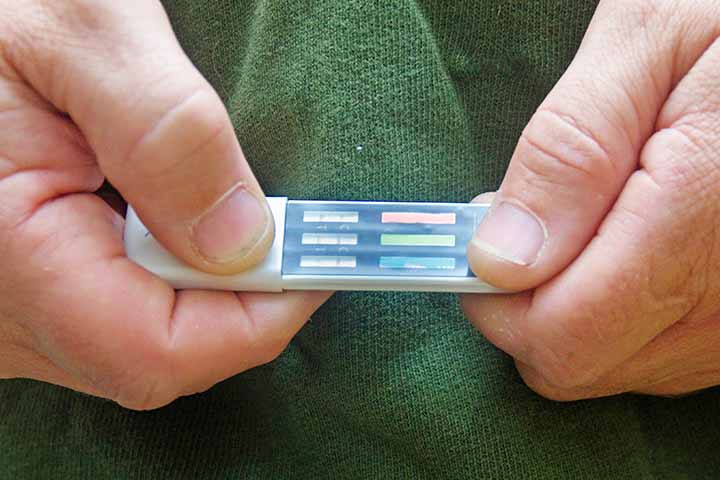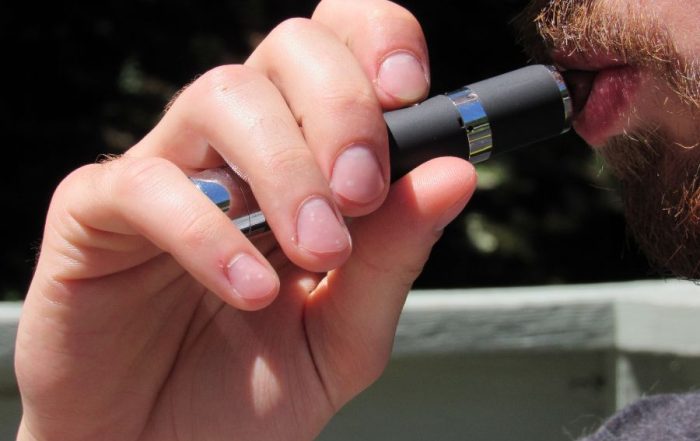Should You Drug Test Your Teenager?
As a drug and alcohol abuse program for teens, one of the first questions we hear when a new family calls us is: Should I be drug testing my teenager?
Drug testing can help to identify potential substance use, but it may damage your relationship with your child. It’s important to have an open conversation with them about illicit drugs before making a decision. Consulting a professional can help you make the best decision for your family.
Although there is no straightforward yes or no answer to this question, we can provide you with some information that may help you in making your decision about this.
Potential downsides of drug testing your teenager
Whether you’re suspecting your child for the first time, or you’re worried about a potential relapse, it can be an easy route to jump the gun and go to your local CVS and pick up an at-home drug test. However, pausing before taking that action can help your teenager more in the long run.
Effects on the parent-child relationship
We often work with families to rebuild trust during the recovery process. Drug screens tend to undermine this process. We find that there are other, less damaging ways of determining whether a young person has been doing drugs or not.
The American Academy of Pediatrics points out in its resource on adolescent drug testing that they do not endorse drug testing your child due to “theoretical concerns about a negative effect on the relationship between parents and their children”. In our experience, this is the case.
Drug screening your teen can ultimately backfire on the parents, further damaging the relationship. This is true regardless of whether they tested positive or negative. There are two main concerns to consider:
- The first concern is that this could cause your teen to simply work harder to sneak around and lie about their use.
- The second is it can also create a dynamic in which the child fears becoming honest about their substance abuse to avoid punishment, leading to more harmful situations for the teen.
This is especially true in situations where things appear to be good, but parents are concerned about a relapse.
Accuracy of the drug test
At-home drug testing can lead to multiple negative effects on the relationship between the parent and teen or the well-being of your teen if the substance use goes undetected. Another one of the concerns with drug testing your teen is two-fold:
- First, home drug tests have a tendency to produce inaccurate drug test results, creating false positives and false negative results.
- Second, parents can have a tendency to misinterpret those results.
Both of these problems lead to erroneous conclusions about a child’s drug use, regardless of the test’s results. If you decide to drug test your teen it is more accurate to utilize the help of a professional to do so.
Can regular testing reduce substance use?
Many substance treatment centers regularly drug test their patients, and the American Academy of Pediatrics (AAP) claims that when drug testing is combined with other therapy methods or a means of rewarding the patient that it can have positive effects on deterring them from using substances.
However, we find the effect that drug tests have on the relationship with the parent are similar to those between the teen and their counselor: they foster a culture of mistrust. It also does little to address the reasons the teen is using drugs in the first place.
Further, there is little to no evidence that at-home drug testing reduces the use of substances, and is one of the main reasons that AAP claims to not endorse the use of at-home drug testing.
So, what are your options if you decide not to drug test your teen?
Become familiar with the signs and symptoms
Some of the leading signs and symptoms of teen substance use are:
- Sudden change in friend groups
- A drop in grades at school or consistent lack of attendance at school
- A loss of interest in activities such as sports or hobbies
- Red or glazed-over eyes
- Irrational emotional reactions
- Lack of appetite
- Lack of sleeping
Have an open and honest conversation
When you start to notice some of the symptoms or you are concerned that your teen is experimenting with drugs, you can start by having an open and honest conversation with your teen about the risks of drug use. Remember to be empathetic and nonjudgmental – this can go a long way in producing more honest answers.
Ask for help
However, if this option does not work and you feel that your child is struggling to be honest or you still have some concerns, ask a professional, preferably one who works with teens regularly. This could include a substance use evaluation by a specialist or a pediatrician.
Consulting with a professional and asking for help can actually help you to develop a plan faster, decide if / when it’s time for drug rehab, and better preserve your relationship with your teen in the long run.
What to do if you decide to drug test
What kind of drug test do you use?
There are several types of drug tests to consider when testing your teen, including urine tests, hair tests, saliva tests, and blood tests.
- Urine tests are the most common and are relatively cheap, easy to obtain, and can detect most drugs.
- Hair tests, on the other hand, offer a longer detection window but are primarily used to detect longer-term drug abuse, it doesn’t necessarily tell you if he or she used within the last few days.
- Saliva tests are non-invasive, easy to administer, and can detect drug use within a few hours
- Blood tests, however, are more invasive, more expensive, and can detect drugs within one or two days, but they are used primarily in medical settings.
The downside is that no one drug test can test for all drugs and some are more expensive. It is best that you consult with your pediatrician or a professional for help in deciding what kind of drug test to use.
Should I drug test my teenager at home or ask a professional?
When making the decision to drug screen, it can seem daunting to request a professional to do so, but it may be better in ensuring your child’s privacy. Deciding to conduct an at-home test can result in distrust and resentment, whereas seeking professional help in conducting the test can alleviate some of the pressure and some of the backlash of doing so yourself.
Summary
Drug testing your teen can be a controversial decision for parents. Some argue that it invades their privacy and undermines trust, while others believe it keeps them safe. Discussing the options with their doctor and having a plan in place to support the addict without enabling can help parents make an informed decision.







